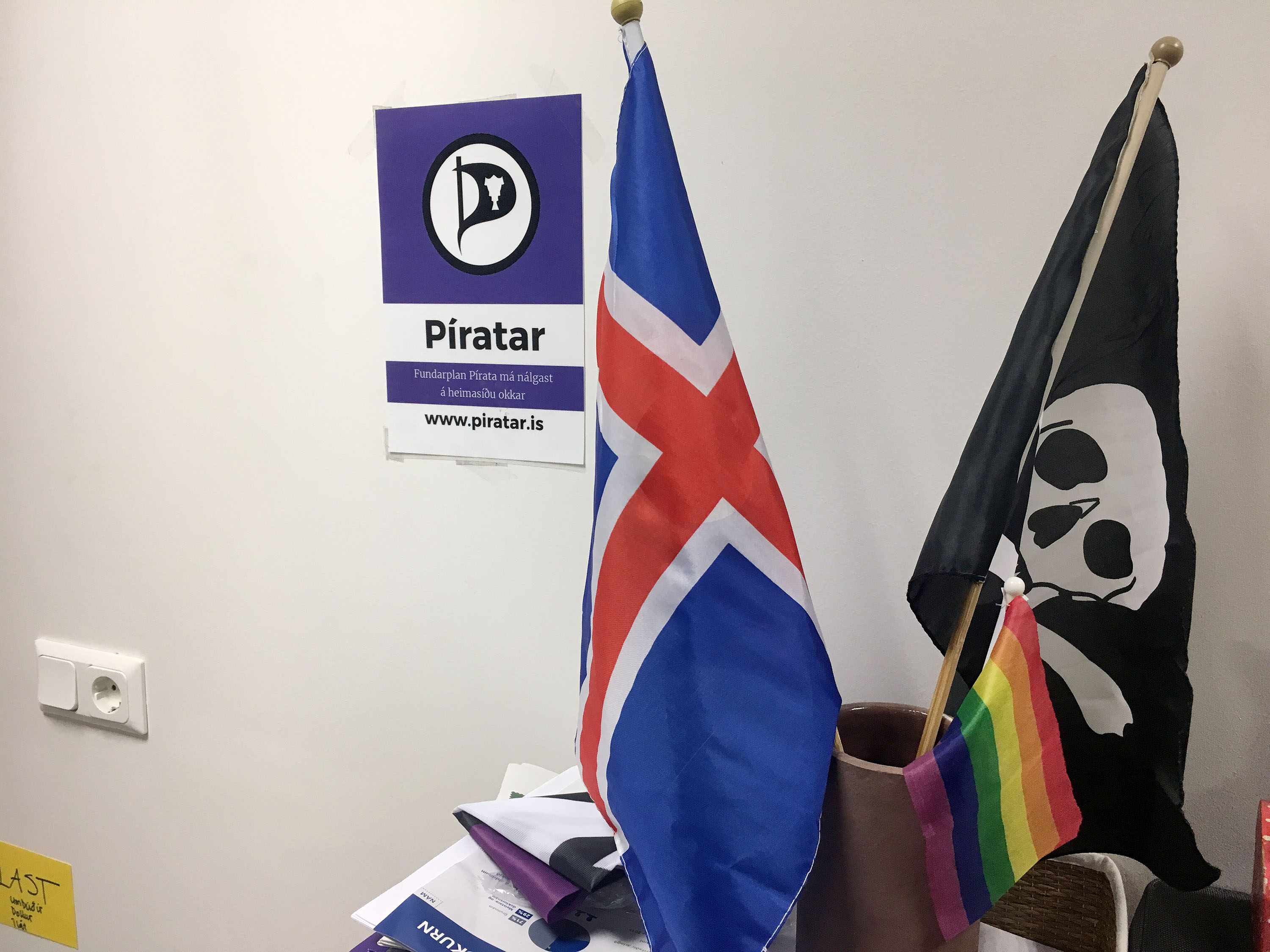Pirate Party surge falls short in Iceland election
LONDON — The Pirate Party, a radical movement of anarchists and hackers that didn’t exist this time four years ago, surged to third place in Iceland’s national elections but fell well short of expectations that it could top the vote, according to results released Sunday.
The outcome of the Saturday election more than triples the number of Pirates in the country’s parliament, the world’s oldest, and it ensures that the renegade movement will remain a force in Icelandic politics for years to come.

The Pirates, an offshoot of an international movement launched in Sweden, had campaigned on a platform of direct democracy, transparency and turning Iceland into “a digital safe haven, the Switzerland of bits.” The party’s leader, poet Birgitta Jónsdóttir, had promised Edward Snowden citizenship in a Pirate-led Iceland.
[Iceland braces for a Pirate Party takeover]
But voters stopped short of putting the Pirates in a position to govern, opting instead to give the pro-business and establishment-oriented Independence Party another shot to lead a country that was turned upside down by the 2008 financial crisis. The Independents had argued that the Pirates were a danger to the country’s economy, which has recently found its footing thanks to a tourism boom.
As expected, no party won a majority, and the Independents will struggle to form a coalition after their partner for the past three years, the pro-farmer Progressives, were punished by voters for the lingering fallout from the crash as well as this year’s disclosures in the so-called Panama Papers. The spring revelation of an offshore firm owned by the prime minister’s wife forced his resignation, and led to the calling of Saturday’s vote.
A Pirate victory in tiny, prosperous and peaceful Iceland would have offered a dramatic symbol of the anti-establishment tide sweeping the Western world this year. Polls in the lead-up to the vote had the Pirates running even with the Independents, or even topping them.
But in the end, with four-fifths of the country’s quarter-million eligible voters casting ballots, the Independence Party’s 29 percent was enough to put it comfortably in first place. The Independents’ total nearly doubled the vote of their next-closest competitor, the Left-Green Movement. The Pirates slipped to third, with 14.5 percent.
The Pirates could still conceivably find their way into the government if the Independents fail to put together a coalition. With seven different parties winning enough votes to enter the parliament, the country was almost exactly divided between traditional, right-of-center parties and left-of-center or more radical alternatives.
[Iceland’s Pirate Party seeks alliances for systemic change]
The kingmaker could ultimately prove to be a party that is even newer than the Pirates, a breakaway faction of the Independents known as Regeneration. That party’s leader, a mild-mannered mathematician named Benedikt Jóhannesson, had said before the vote that he would not let his centrist and technocratic party become the third wheel in another coalition of the two current governing parties, the Independents and the Progressives.
Regeneration strongly favors Iceland joining the European Union, and the party’s newfound clout could help put the issue, which has long divided Iceland, back on the country’s political agenda.
The Pirates don’t take a position on E.U. membership but, as with many issues, argue the choice should be left to the voters through a popular referendum.
A victory for the Pirates would have been a stunning result in a country where politics have long been relatively staid. But it would not have been completely out of character: A stand-up comedian became mayor of the country’s capital, Reykjavik, in 2010, after launching what he jokingly termed the Best Party.